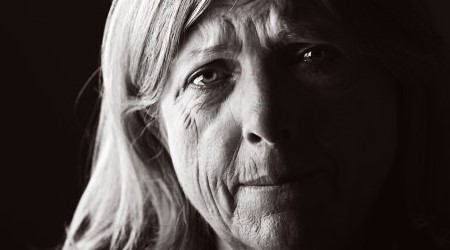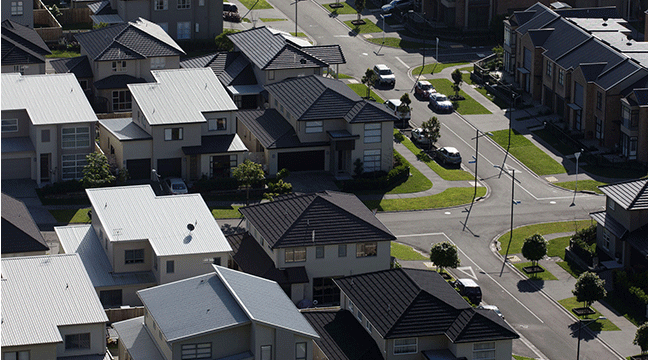News
27 August 2018
The alarming rise of pensioner poverty
The latest set of Retirement Expenditure Guidelines has once again affirmed the bleeding obvious.
New Zealand Superannuation is not enough to live on.
Depending on your household, the lump sum required to bridge the gap between Super and household expenditure ranges from $21,000 to $783,000.
The report published by The Fin-Ed Centre, a joint initiative between Westpac and Massey University, is the sixth in a series that began in 2012 to help pre-retirement New Zealanders financially prepare for their retirement.
The June 2017 installment released last month, shows all household groups now spend more than what is received from NZ Super and that the gap between NZ Super and expenditure levels has widened for most household groups.
For the first time, the report includes information about the additional income, primarily earnings on savings, investment or employment that enables many retirees to supplement their NZ Super.
Unfortunately there remains a significant number of New Zealanders aged 65 plus who solely depend on it.
According to the 2017 Material Wellbeing of New Zealand Households report, a whopping 40 per cent of singles have virtually no other income source.
60 per cent report less than $100 per week from non-government sources, and for 75 per cent more than half their income comes from NZ Super.
Now the Ministry of Social Development has revealed that an increasing number of pensioners are depending on Work and Income to help pay for essentials like food, power and housing.
Figures show that in the last five years there's been a 50 percent increase in the number of hardship grants given out to over-65s.

Last year, Work and Income approved nearly 56,000 grants, up from 36,000 in 2013.
Hardship grants for food have jumped from 9000 in 2013 to almost 16,000 last year.
But there has been an even bigger increase in the number of grants that fall into the 'other' category, which have gone from 14,000 to almost 23,000.
Most of those increases were grants for emergency housing.
Ricardo Menendez March from Auckland Action Against Poverty says approaching Work and Income can be very challenging, physically as well as emotionally.
“For people who worked all their life, only to see themselves struggling in old age, it can be an increasingly demoralising experience. For many of them it’s their first time requiring assistance and it can be really difficult to navigate the systems at Work and Income.”
Furthermore, the forms of emergency housing available are less than ideal.
“Motels or boarding homes with strangers who may have other vulnerable backgrounds are simply not safe spaces for our pensioners. The fact that they have to renew it on a weekly basis, while also being pressured to look into private rentals that are out of their reach as part of their weekly obligations, puts additional hardship on their physical and mental health.”
Dr Kay Saville-Smith, Director of the Centre for Research, Evaluation and Social Assessment (CRESA) explains how we’ve got to this point.
“The big change is New Zealand is the increasing numbers and proportions of older people who are entering their older life stages either in housing debt – they have mortgages OR (and very importantly) living in rent. New Zealand superannuation assumes that older people will be mortgage-free owner-occupiers. The tenure revolution means that this is increasingly not the case and in twenty years time we could expect around half of those reaching 65 years to be in rent.”
Susan Jenkins, Executive Officer of housing charity Abbeyfield says in the last few months older people literally living in their cars and desperate for affordable accommodation have been knocking on Abbeyfield’s door.
“If National Super is your only income, private rentals are unaffordable. We believe that older people deserve a choice of affordable, fit for purpose retirement accommodation and have been trying to engage with government and relevant agencies to ensure that the particular and growing housing needs of older people is addressed. If central government and its agencies could work with us and others to provide more houses, it would be an investment that delivers considerable returns – financial as well as social. Currently it seems that government wants to solve the housing crisis alone. We think more will be achieved if they worked with the community housing sector.”
Dr Saville-Smith who has previously described our housing sector as ‘broken’, says the government needs to step up.
“If the government starts to reinvest in affordable housing then the impacts may be mitigated. We also need to leave behind the delusion around older owner occupiers being able to release significant equity from their homes – this is largely illusionary – so we also need to ensure the homes we build are designed to lifemark standards that let people operate and live functionally in their homes throughout their lives.”
Auckland Action Against Poverty says addressing housing costs should be the Government’s first priority.
“The state housing stock, which could provide permanent safe accommodation for our pensioners, is not increasing fast enough. There also needs to be more public housing projects that cater for pensioner communities who may not have family to support them. Additionally, Work and Income policies around hardship grants should be relaxed to enable people access basic necessities such as food and emergency housing without placing so many obligations and restrictions on them.”

How much can you afford to spend in retirement?
Find out with the Retirement Planning Calculator.